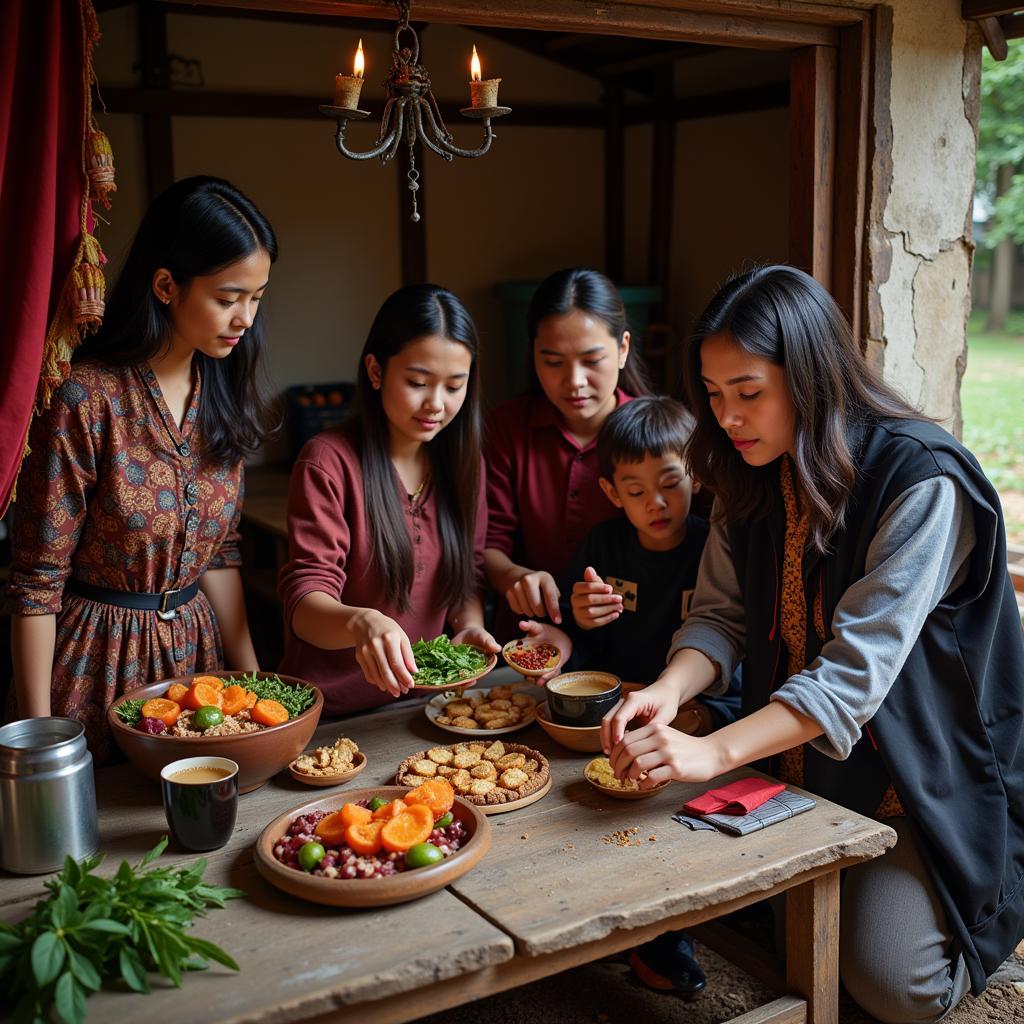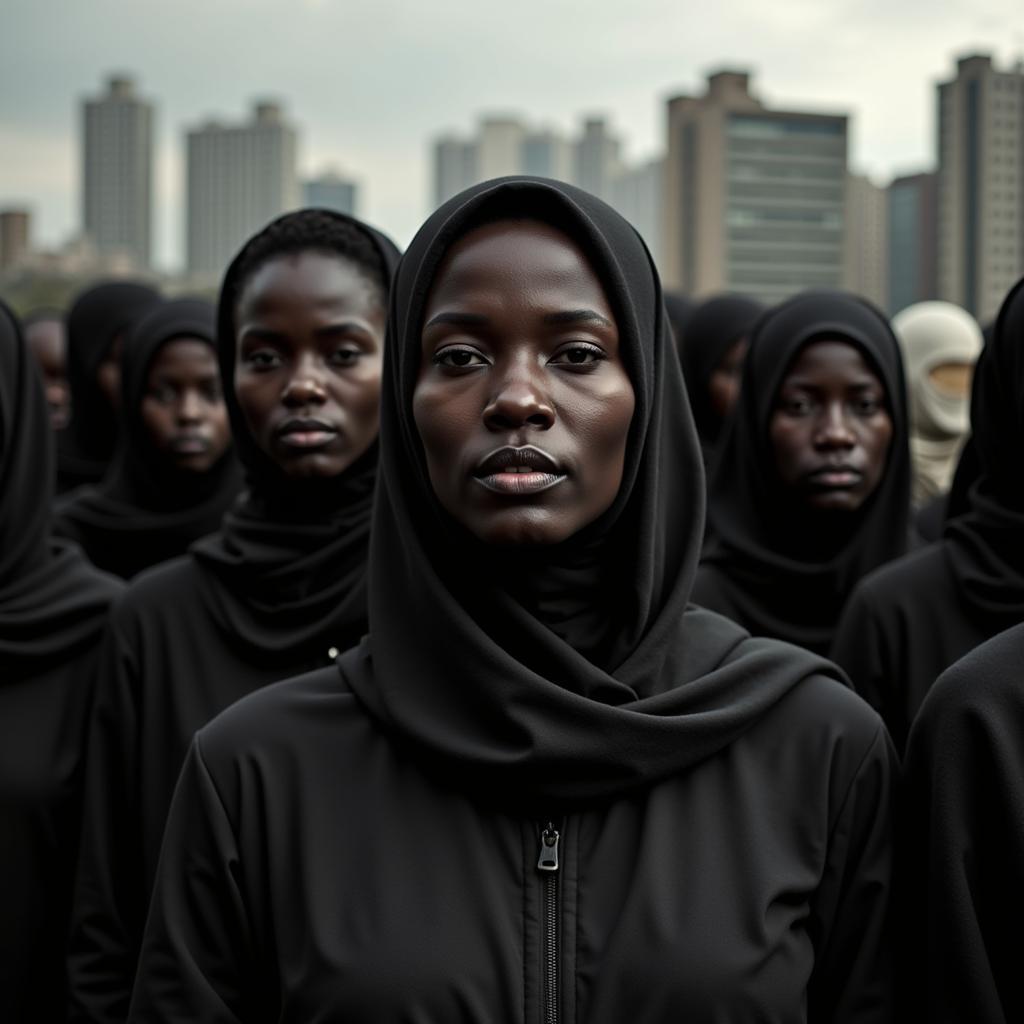Exploring African Beliefs and Practices
African Beliefs And Practices are a vibrant tapestry woven from the threads of diverse cultures, traditions, and spiritualities. From ancient rituals to modern interpretations, understanding these beliefs provides a window into the rich history and complex social structures that define the continent. This article delves into the core of African beliefs and practices, exploring their significance and impact on daily life.
The Diversity of African Spiritual Systems
It’s crucial to avoid generalizations when discussing African beliefs and practices. The continent is home to thousands of ethnic groups, each with its own unique traditions. While some common threads connect these diverse systems, it’s essential to recognize the individuality of each culture. For example, many traditional African religions emphasize a connection to ancestors and the natural world. They often involve elaborate rituals and ceremonies designed to maintain balance and harmony between the living and the spiritual realm. You can find more about specific traditions by researching individual ethnic groups and their customs.
Some traditions, like the african apostolic church, have emerged, blending indigenous beliefs with Christianity. This syncretism reflects the ever-evolving nature of faith and spirituality within the African context. It highlights the adaptability and resilience of African beliefs in the face of external influences.
Ancestral Veneration: A Cornerstone of African Beliefs
Ancestral veneration is a common theme across many African spiritual systems. Ancestors are believed to play an active role in the lives of the living, offering guidance, protection, and blessings. This belief underscores the importance of family and community, emphasizing respect for elders and the continuity of generations. Offerings, prayers, and rituals are often performed to honor ancestors and seek their intervention.
 Ancestor Veneration Practices in Africa
Ancestor Veneration Practices in Africa
How Ancestral Beliefs Influence Daily Life
Ancestral beliefs often shape ethical codes and social norms. The expectation of ancestral judgment can influence behavior and promote social harmony. For instance, in some communities, decisions are made with consideration for how they might be perceived by ancestors. This connection to the past provides a strong moral compass, guiding individuals and communities towards respectful and responsible actions. You can learn more about the influence of ancestral beliefs in everyday life by looking at resources like african customs and traditions beliefs and practices.
The Role of Rituals and Ceremonies in African Beliefs and Practices
Rituals and ceremonies are integral to many African spiritual traditions. These practices can range from elaborate public events to private family rituals. They serve various purposes, including marking life transitions, celebrating harvests, healing the sick, and communicating with the spiritual world. Often, these rituals involve music, dance, and symbolic objects, creating a powerful and immersive experience.
The Significance of Masks and Costumes
Masks and costumes often play a significant role in African rituals and ceremonies. They can represent spirits, ancestors, or animals, allowing individuals to embody different roles and connect with the spiritual realm. The craftsmanship and artistry involved in creating these objects further enhance their significance, transforming them into powerful symbols of cultural identity and spiritual belief. Sometimes, these practices intersect with other cultural phenomena, such as the use of traditional beliefs in sports, as explored in articles on african football witchcraft.
Dr. Adeola Olaniyan, a renowned anthropologist specializing in West African cultures, states, “Rituals are not merely performances; they are transformative experiences that connect individuals to their history, their community, and the spiritual forces that shape their world.”
Professor Kwame Asante, a scholar of African religions, adds, “African beliefs and practices offer a profound understanding of the interconnectedness of life, emphasizing the importance of balance and harmony between the physical and spiritual realms.”
Conclusion: Embracing the Richness of African Beliefs and Practices
African beliefs and practices offer a diverse and complex tapestry of spiritual traditions. Understanding these beliefs is essential for appreciating the richness and depth of African cultures. From ancestral veneration to elaborate rituals, these practices provide a powerful lens through which to view the history, values, and social structures of the continent. Further exploration of african customs and traditions beliefs and practices pdf can provide a deeper understanding.
FAQ
- Are all African beliefs the same? No, Africa is incredibly diverse with thousands of different ethnic groups and unique belief systems.
- What is the role of ancestors in African beliefs? Ancestors are often seen as guides and protectors, playing an active role in the lives of the living.
- What is the purpose of rituals and ceremonies? Rituals mark life transitions, celebrate events, heal the sick, and connect with the spiritual world.
- Why are masks and costumes important? They represent spirits and ancestors, facilitating connection with the spiritual realm.
- Where can I learn more about specific African traditions? Research individual ethnic groups and their customs for deeper understanding.
- Is there a link between traditional beliefs and modern practices? Yes, many modern practices are rooted in traditional beliefs and continue to evolve.
- How do African beliefs contribute to social harmony? Often, respect for ancestors and community values promote ethical behavior and social cohesion.
For further assistance, please contact us at:
Phone: +255768904061
Email: [email protected]
Address: Mbarali DC Mawindi, Kangaga, Tanzania.
Our customer service team is available 24/7.



